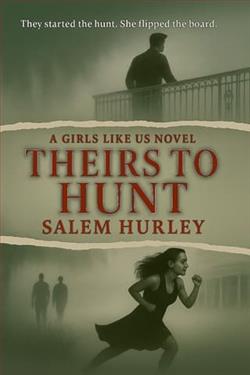Page 81 of An Honorable Deception
But it would be. He grinned and kissed the tip of her nose. “And once we’re married, I think it’s only fair that we give each other at least twenty-four hours’ notice before anyone goes flitting off on a case and putting themselves in danger.”
“Well now you’re just being presumptuous.” Her fingers threaded through the hair at the back of his head, but there was still enough space between them so that he could see the gleam—that blessed, brilliant, unfettered gleam—in hereyes. “Who’s to say we’llhavetwenty-four hours’ notice? This work is fast-paced sometimes. I think we’d better agree to flit together.”
He made a show of considering, said, “Deal,” and sealed it with a kiss.
TWENTY-THREE
Aside from parading about London in Alethia’s shawl the other day, Lavinia hadn’t been called upon to act since the last play her mother had tolerated her being in at the Tower.
Even then, she’d never been the natural on the stage that Yates or Marigold were. They’d often written their own scripts, but the lines that were clever and fun when Lavinia was rehearsing them went utterly flat when she got up in front of the crowd.
And that was when the crowd had been her parents and the Fairfaxes.
Now she stood on the darkened stage, its heavy curtain cleaned of dust and rehung, and it was a far different audience that was even now filing in. Far more at stake than an evening’s entertainment.
Lives. Hers, yes. She knew there was risk in those moments before her face was revealed, when Rheams, Dunne, and Vernon would be there in the audience. But so many more than hers. The lives of her friends, who filled the places of this building the guests couldn’t see. The lives of the onesshe’d left behind in Northumberland, who would be back in the crosshairs if they failed today.
The lives of each woman and child in the Empire House—of every ayah and maid brought to England and abandoned, who had no idea when they sought help from a charity, they were putting themselves in the hands of monsters.
Her hands shook a bit. How could they not? If her lines fled her head this time, Marigold wouldn’t be able to whisper them to her. But beneath the nerves, there was surety.
Not in herself. Not even in Yates and Marigold, Gemma and Graham, the Caesars and Neville and Clementina and Barclay’s crew. Because they were not here for money or position or power or vengeance.
She knew, with every fiber of her being, that God was with them. Because their Father loved what was good and hated what was evil. Because Christ had told them that the angels of the children, the innocents, were always before the throne of God.
They were here to show women like Samira that they were loved.
And men like Babcock what love should look like.
“Nervous?” Yates slipped up behind her in the darkness, his voice so quiet she could scarcely hear it, even with his mouth at her ear.
His breath tickled, making her smile despite it all, and he slid an arm around her waist and anchored her to him for a few seconds.
Her eyes slid shut. It made it no darker, but it still somehow made her other senses more alive. The feel of his strong arm holding her close, the light scent of his soap, the warmth from his bare arms seeping into her. He wore his acrobatic attire, and when she’d first seen him in it two hours ago, she’d indulged in the very thing she’d wanted to do since she firstsaw him on the trapeze again after she recovered from her illness. She’d slid her hands up his arms, linked them around his neck, and kissed him.
It hadn’t sunk in yet—that he was finally hers, that she was finally his. It would take more than eighteen hours for that. Right now, every time he reached for her hand or pulled her close like this or kissed her—which he’d done every time his sister’s back was turned last night—she felt she must be dreaming.
How could he love her? How could he let her love him? She’d thought this was impossible, had tried to make herself say good-bye to him, as he had to her. She had thought that it would be enough to help others.
It could have been. That’s what he had said, too, last night. He could have gone on living without her. People lived with broken hearts all the time. She could have run her own home for displaced women and children and been fulfilled.
But it was so much better this way—to do it together instead of apart.
Yates pressed a kiss to her temple and let his lips linger. “I’ll catch you,” he said in that same quiet whisper.
She nodded. “I know you will.”
She felt more than heard another figure slink their way in the dark, though she didn’t know who it was until he spoke as softly as they had. Barclay. “We’re missing some.”
Her heart hammered, even as her mind flew over the possibilities of what he meant. “Some what? Cloaks? Masks? Music?”
“Audience members. Your key five haven’t arrived.”
The hammer slowed to a death knell. “They found out.” What else could it be? They’d known that those five—Vernon and Rheams and Dunne, along with the two henchmen, Courtney and Weiss—were the most likely to be suspiciouswhen those ornate invitations arrived. They, after all, were the ones who issued invitations on behalf of the Empire House. No one issued them tothem. They’d banked on them assuming Babcock was behind it and storming in to see what he was up to.
From what they’d learned, they each operated with their own authority, except in the most crucial matters, and they tended to inform one another of things only after they were in place. It would fit the pattern, then, for Babcock to make some big decision and only let them know afterward.
Barclay didn’t need her to remind him of that—his family were the ones who had stolen correspondence and files from each man’s home.















